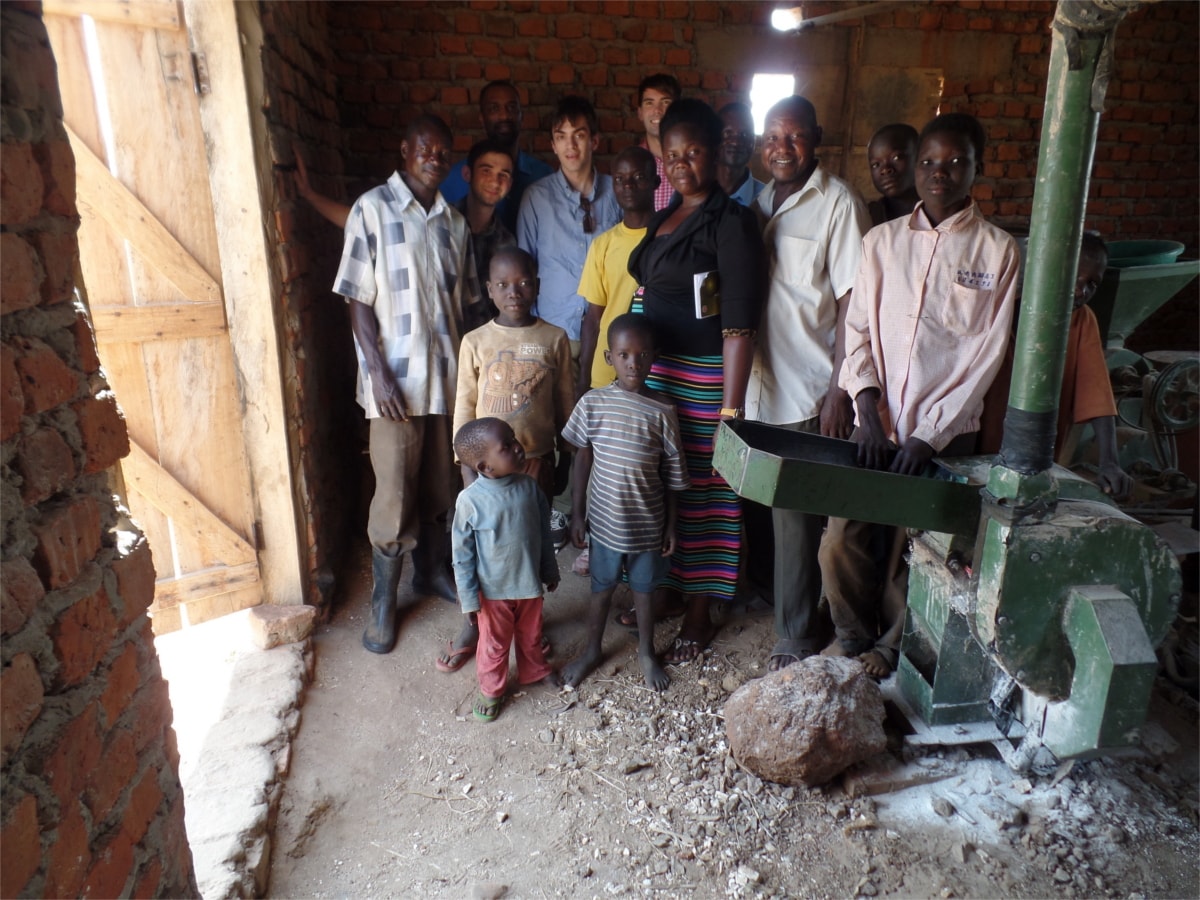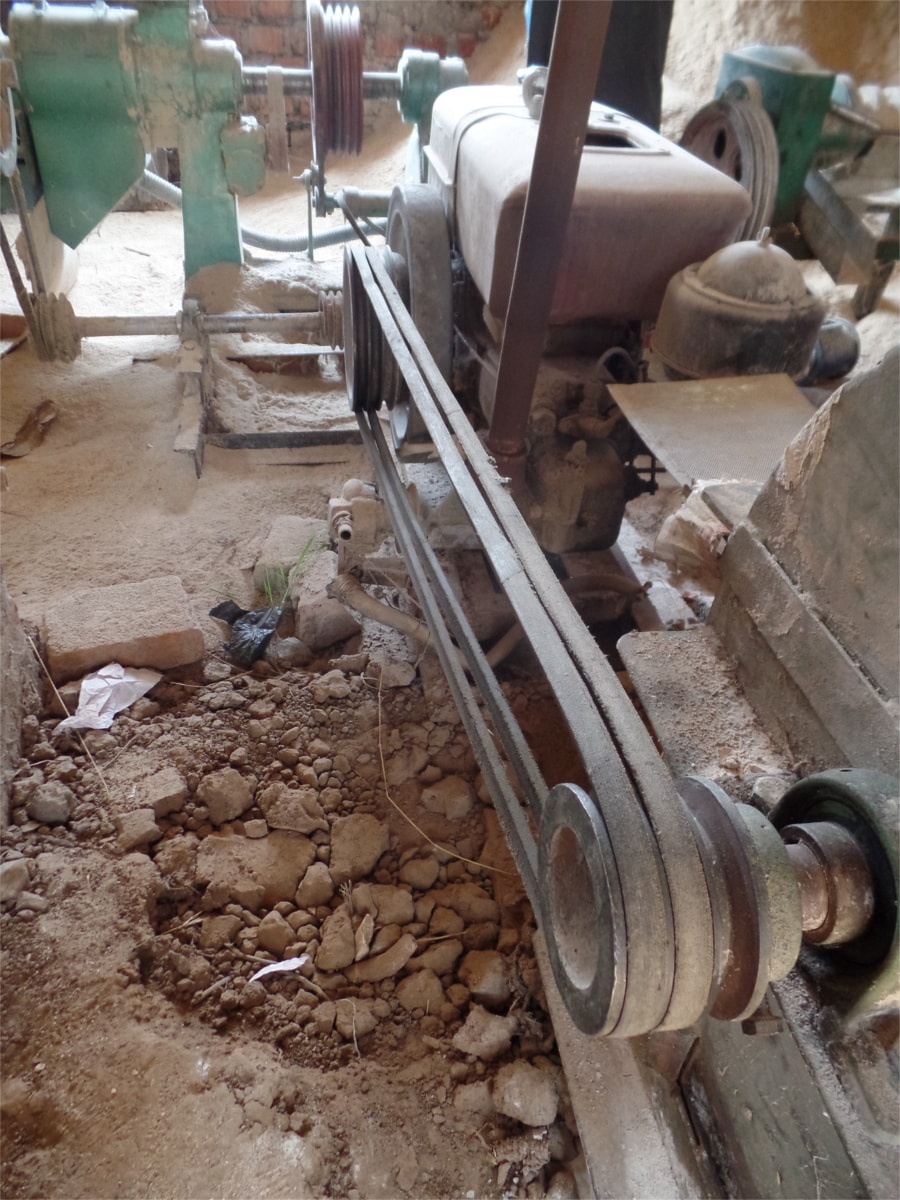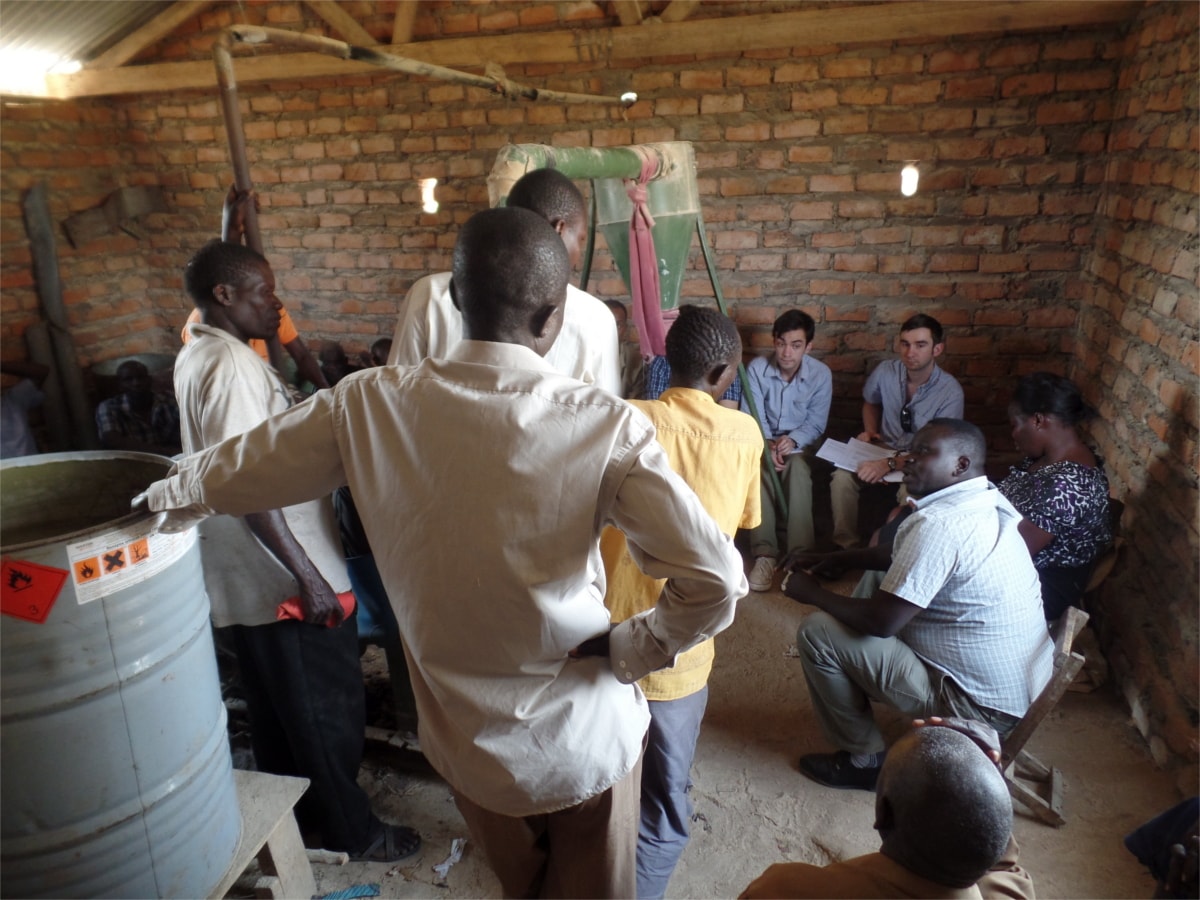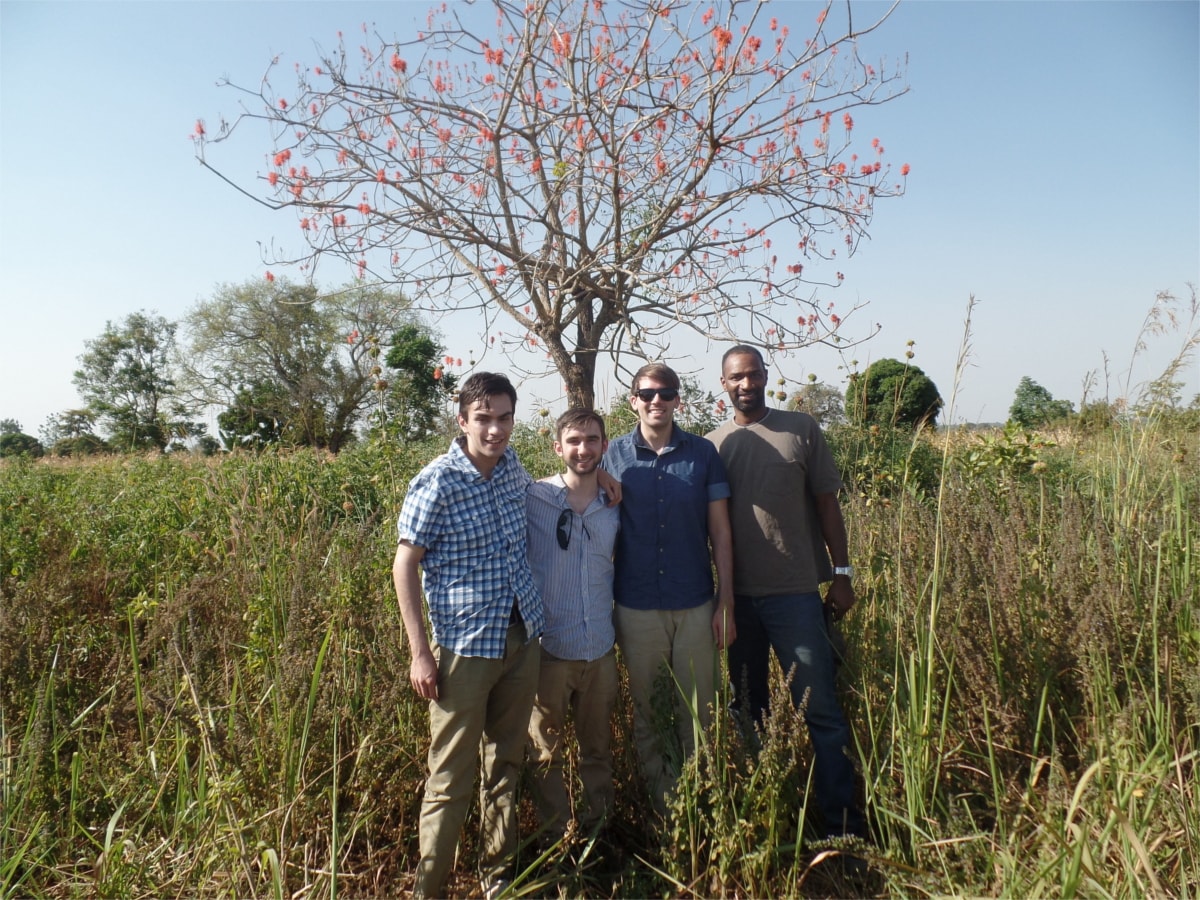


Engineers Without Borders
Sustainable Agriculture in Soroti, Uganda
September 2013 - May 2015
I knew I wanted to get involved with EWB before I even stepped foot on Columbia's campus. Using the engineering skills I would learn in class to help communities in need now was a no-brainer!
I was active within the Uganda program of EWB throughout my 2 years at Columbia. I served as the 2014 head of fundraising and public relations, and was team lead for the January 2015 trip to Uganda.
Our program has been active in Soroti, Uganda since 2008. The project began as a response to recent violence and drought in the northern Uganda region, which created instability and forced many villagers off of their land and into new communities. EWB partnered with community members and Pilgrim, a Ugandan NGO, to install multi-function platforms (MFPs) in struggling communities around Soroti. The MFP consists of a stationary diesel engine that attaches to a number of agricultural processors.
Mechanically processing crops is much faster than doing so by hand; value is added to crops, allowing them to fetch a higher price at market; MFP operators learn technical skills and are paid for their work; and profit generated by MFP goes back into a pot that the community can invest as they see fit – most communities hope to use the money to send their children to school.
What started as a pilot program in two communities grew into ten installations all around Soroti. When I traveled to Uganda in January 2015, the final two MFPs were being installed. Over the course of two and a half weeks, our team visited and held conversations with each community to assess the success and future direction of their MFP project. These assessments revealed successes and failures in communication, as well as a pervasive mechanical problem across installations – vibrations stemming from the diesel engine led to cracks in the exhaust pipe, allowing exhaust fumes to enter the MFP structure. As the team lead, I led these conversations with communities, interfaced with our partner NGO, and led nightly meetings with the EWB team to review our findings. Once back in NYC, I worked with our professional mentor and technical team to engineer a solution to the leaky exhaust pipes.
Working with EWB required me to work on diverse teams, communicate technical information with non-technically minded people across a language barrier, and think outside of the box to address community development and communication problems. Traveling to Uganda helped expand my perspective to a more global one, and bolstered my belief in engineering’s ability to work for the social good.
Read more about our program's work in Soroti here.
